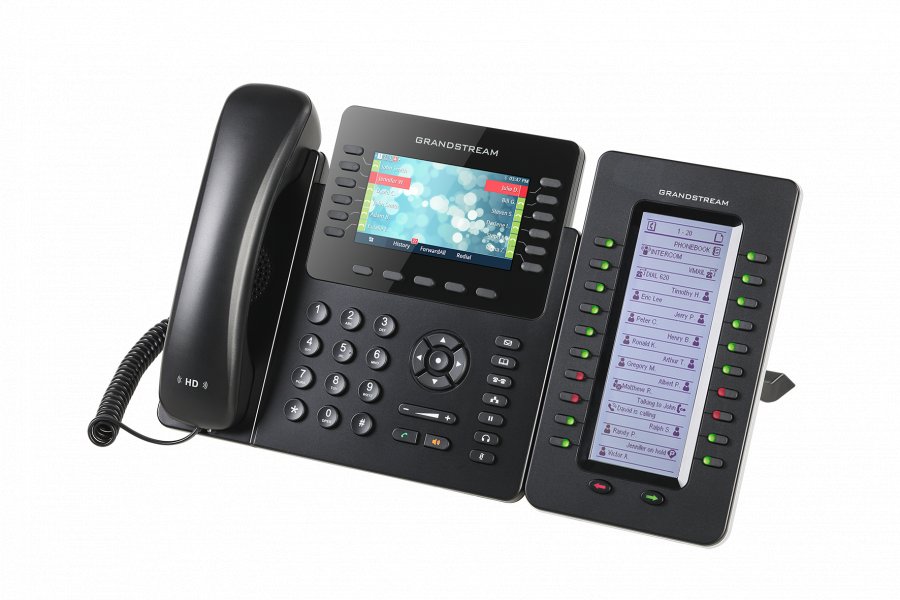Could genuine human connection turn fleeting sales interactions into lifelong partnerships? In today’s increasingly competitive market, empathy and trust are the true currencies of successful selling. This work reveals how active listening, emotional intelligence, and authentic engagement forge bonds that transcend transactional exchanges, fostering loyalty and long-term growth. While past sales strategies focused on quick pitches and product features, modern approaches emphasize understanding clients’ motivations and concerns, creating partnerships rooted in sincerity. Technological advancements like AI and data analytics enhance these emotional connections, enabling sales professionals to anticipate needs and respond more thoughtfully. Yet, amid these innovations, the core remains unchanged: authentic human warmth and trust are irreplaceable. Will the future of sales blend cutting-edge tools with heartfelt care? The answer lies in leveraging technology to deepen genuine relationships, making empathy the ultimate differentiator in a crowded marketplace.
Building Bonds of Trust Through Genuine Empathy
Building trust and showing genuine empathy are at the core of successful sales relationships. When salespeople take the time to truly understand their clients’ needs, motivations, and concerns, they create a connection that extends beyond simply pitching a product. This emotional understanding fosters trust, making customers feel valued and confident in their decisions. In today’s crowded market, quick pitches and hard sells no longer cut it. The best salespeople focus on creating authentic human connections that can last over time.
Empathy in sales isn’t just about being kind; it’s about actively listening and caring about what the client is saying. When you put yourself in their shoes, you gain insight into their challenges and desires from their perspective. This understanding makes your responses more relevant and meaningful, which builds credibility. Trust begins to grow when clients sense that your primary goal is to help them, not just close a deal.
Trust also depends on honesty and consistency. Being transparent about what your product can and can’t do reinforces your credibility. Following through on promises and maintaining regular contact show that your concern isn’t fleeting but rooted in a sincere desire to serve the client’s best interests. Over time, these actions turn initial interactions into lasting relationships built on mutual respect and understanding.
Creating this emotional bond shifts the sales dynamic from a simple transaction to a partnership. Clients who feel understood are more likely to share their real concerns and ask questions they might hesitate to voice otherwise. This openness allows salespeople to address issues before they become obstacles, making the process smoother and more collaborative. It also encourages loyalty, as customers tend to stay with people they trust and feel connected to.
Building relationships in sales requires patience and effort. It’s more than just making a sale today—it’s about laying the groundwork for future interactions. When you focus on understanding your clients’ evolving needs and maintaining genuine engagement, you turn one-time deals into long-term partnerships. This approach boosts customer retention, generates positive word-of-mouth, and creates a foundation for sustainable growth.
Achieving this level of connection involves fundamental strategies. Active listening is essential—pay close attention to what your customer says, ask thoughtful questions, and show authentic interest. Being honest about your product’s strengths and limitations builds credibility. Personalizing your approach to each client’s situation demonstrates that you truly value their individual needs. And staying consistent—following up, delivering on promises, and remaining engaged—cements trust over time.
When these elements come together, sales become more than just transactions; they become relationships that endure. Genuine empathy and trust aren’t just soft skills—they’re the foundation for lasting success in sales. By focusing on authentic human connection, sales professionals can turn brief interactions into lifelong partnerships built on trust, understanding, and mutual growth.
Evolution of Empathy: From Transactional Roots to Modern Trust
The way empathy has played a role in sales has changed dramatically over the years. In the early days, selling was all about quick exchanges focused on the product and price. Salespeople relied on straightforward pitches, aiming to close deals fast without much thought for the customer’s feelings or deeper needs. Emotional understanding wasn’t part of the equation; it was a transactional game that left little room for genuine connection.
As markets became more competitive throughout the 20th century, the value of trust and rapport became clearer. Salespeople who could pick up on subtle cues and respond genuinely gained an edge. This shift moved away from scripted scripts toward more authentic, human interactions. Recognizing that emotional awareness influences buying decisions, sales strategies started emphasizing building trust and loyalty, not just making quick sales. Those who connected on a personal level found customers returning and recommending their services.
Modern sales techniques have built on these lessons. Today, empathy isn’t just a soft skill—it’s central to success. Advances in psychology and behavioral science show that emotional understanding can significantly influence how people decide. Techniques like active listening and personalized solutions help uncover what truly motivates each client, transforming a simple transaction into a meaningful relationship. Authenticity and trust have become the currency of modern sales.
Throughout history, the most successful salespeople have always been those who treated customers like people, not just targets. Early on, genuine human connection—listening carefully, caring sincerely, and understanding deeply—laid the groundwork for lasting success. Over time, the focus shifted toward creating long-term relationships rather than one-off deals. These lessons remind us that empathy and trust are timeless ingredients in sales, no matter the era.
Today’s technological advances—such as CRM systems and data analytics—allow sales teams to understand their clients better than ever before. Even with these tools, the core remains unchanged: empathy is about understanding and responding to human needs. Whether face-to-face or digital, the ability to connect emotionally continues to be essential for building lasting trust and loyalty.
Looking ahead, the evolution of sales suggests that empathy will become even more integrated with technology. With AI and data-driven insights, salespeople will anticipate client concerns and tailor responses in real time, deepening emotional bonds at scale. Despite these innovations, the fundamental importance of genuine human connection remains. The most effective sales strategies will combine technological support with authentic care, ensuring that trust and empathy continue to drive success in a competitive marketplace.
Harnessing Emotional Intelligence for Today’s Customer Connections
In today’s sales environment, emotional intelligence isn’t just a nice-to-have; it’s essential. Sales professionals are increasingly shifting from rehearsed scripts to genuine conversations that prioritize understanding and responding to customers’ feelings, motivations, and concerns in real time. This human-centered approach fosters authentic connections, making clients feel truly heard and valued from the very first interaction. By actively listening and asking insightful questions, salespeople can uncover what matters most to each individual, creating a foundation of trust that goes beyond mere transactions.
Reading verbal and nonverbal cues has become a critical skill. Paying close attention to body language, tone of voice, and subtle facial expressions helps salespeople gauge how a client is feeling and adapt their responses accordingly. This heightened awareness not only deepens trust but also demonstrates a sincere interest in the client’s perspective. When clients sense that their emotions are understood, they’re more likely to open up about their true concerns, turning a routine sales call into a collaborative problem-solving session.
Creating a partnership rather than just making a sale is now a central focus. When salespeople show empathy by genuinely understanding their clients’ challenges and goals, conversations shift from pitching to problem-solving. Clients feel respected and appreciated, which increases their willingness to explore solutions together. This collaborative approach not only leads to immediate wins but also sets the stage for ongoing relationships built on mutual understanding and shared success.
Research from behavioral science highlights how emotions influence decision-making more than logic. Recognizing signs of hesitation, frustration, or excitement allows salespeople to respond with reassurance and clarity, reinforcing the client’s confidence. Such emotional engagement makes clients feel valued and understood, often tipping the scales in favor of trust and loyalty. In a competitive market, this empathetic responsiveness can be the key difference between closing a deal and losing it.
In the digital realm, empathy remains just as vital. Virtual meetings, emails, and chats demand even greater attentiveness to tone, language, and timing. Without physical cues, salespeople must rely on the subtleties of digital communication to gauge and respond appropriately. Skillful use of these cues helps bridge the distance, making clients feel appreciated and understood despite the lack of face-to-face interaction. This adaptability enhances the quality of remote relationships, ensuring that empathy continues to drive trust and engagement.
Advances in technology further support empathetic selling. Data analytics and sentiment analysis tools can detect emotional shifts in language, providing real-time insights that help tailor responses more thoughtfully. When combined with genuine curiosity and active listening, these tools enable sales professionals to deepen their understanding and strengthen bonds. The future of sales lies in blending technological support with authentic human care, creating experiences that resonate on a personal level and foster lasting trust.
Embracing these innovative tools and techniques can significantly enhance a salesperson’s ability to connect on a deeper level with clients. For more insights on developing emotional intelligence skills, explore this comprehensive guide on emotional intelligence in sales. By continuously refining these skills, sales professionals can build stronger, more meaningful relationships that stand the test of time.
Turning Theory Into Practice: Real Stories of Empathy Transforming Sales
Real-world examples highlight just how transformative empathy can be in shaping sales outcomes. Consider a software sales team that faced hesitation from a potential client worried about costs and implementation hurdles. Instead of pushing for a quick close, the salesperson took the time to listen carefully, asking questions to understand the client’s specific concerns. By acknowledging their fears and sharing stories of similar clients who successfully navigated those challenges, trust was built gradually. This wasn’t just about making a sale—it was about establishing a partnership rooted in understanding and support.
Another example involves a small business owner hesitant to invest in a new product. The salesperson resisted rushing into a pitch and instead inquired about the owner’s daily struggles. Listening deeply, they responded with tailored solutions that addressed the business’s unique needs. This genuine care turned a skeptical prospect into a loyal customer who appreciated the sincerity. Such moments show how empathy—truly tuning into the client’s perspective—can convert skepticism into loyalty.
Many sales teams now reflect on their interactions to improve their approach continuously. They analyze what worked and what didn’t, adjusting their techniques to foster deeper human connections. By genuinely listening and responding to concerns, they create a partnership rather than just a transaction. Clients pick up on this sincerity, feeling valued and understood, which boosts repeat business and referrals.
The impact of empathy goes beyond individual deals, shaping overall results. Companies prioritizing understanding their clients often see higher closing rates and increased satisfaction. For instance, a B2B service provider reported a 30% rise in renewal rates after adopting a more empathetic, client-focused approach. These stories confirm that authentic connection doesn’t just close sales—it builds a resilient, loyal customer base.
Different industries and contexts require tailored empathetic techniques. In consultative selling, asking insightful questions and listening attentively help craft personalized solutions. In complex or high-stakes deals, ongoing relationship management—like regular check-ins—reinforces trust and keeps the connection alive. These adaptations demonstrate that empathy isn’t a one-size-fits-all tactic but a flexible approach that transforms sales into meaningful human interactions.
Learning to incorporate empathy authentically demands effort and practice. Active listening, honest communication, and personalized responses become habits over time. When salespeople sincerely follow through on commitments and show genuine concern, they forge stronger bonds. This consistent behavior turns empathy from a skill into a core part of their sales identity, creating a cycle of trust and loyalty that sustains long-term success.
The Future of Empathetic Selling: Merging Technology with Human Warmth
As technology advances rapidly, the future of empathetic selling promises to become more personalized and intuitive than ever before. Data analytics and artificial intelligence are equipping sales professionals with deeper insights into customer preferences, emotional states, and behavioral patterns—often even before customers articulate their needs. This means salespeople will be able to anticipate concerns and craft responses in real time, creating smoother, more human-centered experiences that feel genuine despite digital interactions.
These technological tools don’t replace authentic human connection; instead, they amplify it. Sentiment analysis and real-time data allow sales teams to pick up on subtle emotional cues, helping them respond more thoughtfully and empathetically. Even when interacting remotely, salespeople can gauge tone, expression, and hesitation, adapting their approach to foster trust and understanding. This blend of human insight and technological support ensures that empathy remains at the core of every engagement, regardless of the communication channel.
Beyond tools, shifting consumer values are shaping what empathy will look like in the future. Buyers increasingly seek authenticity, transparency, and social responsibility from the brands and salespeople they trust. Future sales strategies will need to be rooted in honest conversations that address genuine concerns and shared values. Moving away from scripted pitches, sales professionals will focus on building long-term relationships grounded in integrity, which enhances loyalty and advocacy.
In a competitive landscape driven more by relationships than transactions, empathy will evolve into a key differentiator. Companies investing in emotional intelligence training and leveraging digital insights will stand out. Sales teams will develop habits of curiosity, active listening, and sincere responses that become second nature. These behaviors will transform empathy from a soft skill into a strategic asset that sustains growth and deepens customer loyalty over time.
Emerging technologies like AI and automation will also support scalable, personalized relationship-building. AI-driven platforms could enable ongoing, context-aware conversations, making each interaction feel relevant and caring—even at scale. These systems will blur the line between human intuition and machine intelligence, allowing salespeople to deliver tailored experiences that foster trust and confidence across large customer bases.
Despite the rise of automation, human connection remains fundamental. Authentic empathy—genuine curiosity and concern—will continue to be the most powerful tools for building trust. Technology can serve as a bridge, helping salespeople understand their clients better and respond more thoughtfully, but it’s the heartfelt engagement that truly cements lasting relationships. The future of sales will hinge on combining technological innovation with human warmth.
Looking ahead, those who embrace this dual approach—integrating advanced tools with authentic care—will lead the way. Sales professionals who adapt by honing their emotional intelligence and leveraging data-driven insights will not only close more deals but also nurture meaningful, lasting partnerships. This balanced strategy promises a future where trust and understanding are woven into every touchpoint, transforming sales into a truly human endeavor that benefits both businesses and their clients.










